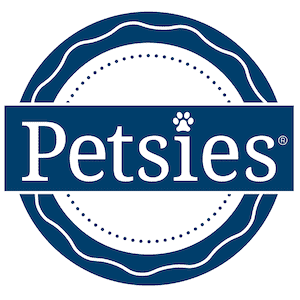In the world of pets, proper nutrition is crucial for maintaining health and well-being. A balanced diet, rich in essential nutrients, can significantly impact your pet’s overall quality of life. In this guide, we will explore the key ingredients vital to optimizing pet health.
Essential Pet Nutrients
Essential pet nutrients, just like those for humans, include proteins, fats, vitamins, minerals, and water. Both cats and dogs require these nutrients in varying proportions to remain healthy. A key distinction is that cats need a higher amount of certain nutrients, such as the amino acid taurine, which plays a vital role in their cardiac and neurological function. Understanding the nutritional requirements of your pet is fundamental in planning an appropriate diet.
The foundation of any pet’s diet should be proteins, which are composed of amino acids. Proteins provide essential energy, maintain muscle mass, and support healthy hair, nails, and immune function. Some common sources of protein for pets include chicken, beef, fish, and eggs. Legumes can also be a good source of protein, specifically for dogs.
Fats and Carbs
Fats, including essential fatty acids like omega-3 and omega-6, play a crucial role in maintaining healthy skin and coat, enhancing brain function, and supporting overall body performance. Some sources of beneficial fats for pets are fish oil, flaxseed oil, canola oil, and chicken fat.
In particular, fish oil has been shown to have numerous health benefits for dogs, and finding the best fish oil for dogs can aid in managing various health conditions and improving their overall well-being.
While not strictly essential for cats, carbohydrates are an important energy source for dogs. They supply quick energy, aid in digestion, and regulate blood sugar levels. Carbohydrates should be provided in moderation and from quality sources. Opt for complex carbohydrates such as brown rice, whole grains (barley, oats), sweet potatoes, and pumpkin.
Vitamins and Water
Vitamins and minerals are essential for maintaining your pet’s overall health. They take part in various physiological processes like bone growth, immune system function, and vision support. Some essential vitamins and minerals are vitamin A for vision and immune function, vitamin D for calcium absorption and bone health, calcium for teeth and bone development, phosphorus for bone and muscle function, and zinc for skin and coat health.
Water is also essential for your pet’s overall health. It helps maintain body temperature, aids digestion, flushes out waste, and supports a myriad of bodily functions. Always ensure your pet has access to clean, fresh water throughout the day to stay well-hydrated.
Customizing Your Pet’s Diet
Each pet is unique, and their nutritional needs may vary based on breed, age, activity level, and health status. To provide a balanced diet, it is important to consider these factors when choosing appropriate ingredients. Discussing your pet’s specific dietary needs with a veterinarian can provide valuable guidance.
Some pets may benefit from specialized diets designed for their unique needs. Specialized diets can address food allergies, weight management, age-related concerns, and medical conditions such as kidney or liver diseases. These diets can provide targeted nutrition to help manage these specific issues, improving both your pet’s health and quality of life.
Common Concerns
It is crucial to be aware of potential hazards in your pet’s diet. Certain foods can be toxic or harmful to pets, such as chocolate, grapes, raisins, onions, and garlic. By understanding what to avoid, you can prevent accidental poisoning or health complications. Make sure to keep these harmful items out of reach and inform family members and guests of these dangers.
Another important aspect of your pet’s nutrition is maintaining proper feeding frequency and portion sizes. Overfeeding can lead to obesity and related health problems. Be sure to follow recommended feeding guidelines based on your pet’s weight, age, and activity level. Regularly monitoring your pet’s weight and adjusting the meal sizes accordingly can help ensure your pet remains healthy and fit.
Final Thoughts
A proper diet is essential for your pet’s health and well-being. Consider the ingredients outlined in this guide when preparing meals for your furry friend. By providing your pet with a well-balanced diet filled with essential nutrients, you can ensure their vitality and happiness for years to come.



